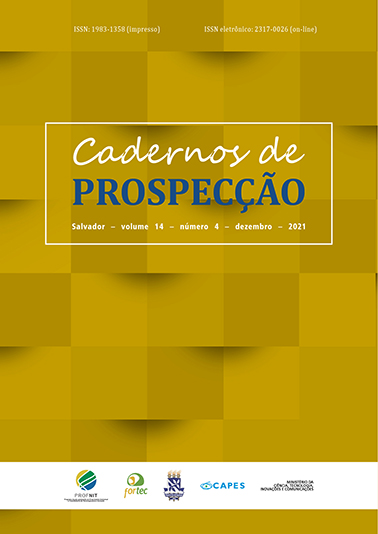Editorial
DOI:
https://doi.org/10.9771/cp.v14i4.46415Keywords:
EditorialAbstract
Open innovation proved to be fundamental in the fight against the COVID-19 pandemic in Brazil and in the world, further strengthening the idea of the triple helix and, if we look more closely, the quintuple helix. When reviewing the editorials of previous issues of the magazine, we came across all the elements present in these concepts, from the performance of the three helixes: government, university and industry, to the acceptance of society and the impact on the environment, to compose the five facets of this intertwined system of innovation. Thus, we had an extensive discussion about the National Innovation Policy and the need for investments in science and technology, about the performance of professionals and companies in the fight against the new coronavirus, as well as about the strong performance of academia, with the magazine itself being a vector of contribution, through the dissemination of knowledge. It is also necessary to consider aspects related to society and the environment, strongly brought up in several articles. Regarding prevention, when analyzing the vaccines against COVID-19 in development and registered with the World Health Organization, we can observe that there are 185 vaccines in the pre-clinical phase and 114 in clinical trials, with 24 in phase 3 and eight vaccines in the phase 4. In Brazil, we have two vaccines with registration granted by the National Health Surveillance Agency (ANVISA) and two vaccines with emergency use granted, in addition to the vaccines that make up the Covax Facility Consortium. Vaccines in use in Brazil involve different technologies, from the use of inactivated viruses, non-replicating viral vector and messenger RNA. As an example of open innovation, we highlight the vaccine developed at the University of Oxford and commercialized through a spinout, Vaccitech, located in the University's Technology Park and holder of the technology's intellectual property. This technology was licensed to AstraZeneca by Oxford University Innovation. In Brazil, a technology transfer agreement was signed between AstraZeneca UK Limited and Fundação Oswaldo Cruz/Institute of Technology in Immunobiologicals/Fiocruz. In other words, the elements of open innovation are perfectly represented, highlighting the knowledge generated in the academy and the partnerships made until the product reaches society. When attending the lecture given at the Fortec Meeting by Fiocruz researcher Beatriz de Castro Fialho, the importance of technological prospecting for the choice of the cited immunizer became evident, a subject that is heavily explored by the magazine. Within this context, the importance of Fortec is highlighted as an entity that drives open innovation, by providing an environment of interaction and incentive for the generation and transfer of technology, with emphasis on the Profnit professional master's degree, which trains staff of excellence to operate in the most diverse innovative environments. Continuing to contribute to the dissemination of scientific and technological knowledge, this edition of Cadernos de Prospecção brings together 22 articles by 66 authors representing 20 Brazilian organizations from 12 Federation Units located in four regions of Brazil and the Federal District. We wish you all an excellent read!Downloads
Download data is not yet available.
References
Editorial
Downloads
Published
2021-10-01
How to Cite
Uchôa, S. B. B. (2021). Editorial. Cadernos De Prospecção, 14(4), 1015–1016. https://doi.org/10.9771/cp.v14i4.46415
Issue
Section
Editorial
License
Copyright (c) 2021 Cadernos de Prospecção

This work is licensed under a Creative Commons Attribution-NonCommercial 4.0 International License.
O autor declara que: - Todos os autores foram nomeados. - Está submetendo o manuscrito com o consentimento dos outros autores. - Caso o trabalho submetido tiver sido contratado por algum empregador, tem o consentimento do referido empregador. - Os autores estão cientes de que é condição de publicação que os manuscritos submetidos a esta revista não tenham sido publicados anteriormente e não sejam submetidos ou publicados simultaneamente em outro periódico sem prévia autorização do Conselho Editorial. - Os autores concordam que o seu artigo ou parte dele possa ser distribuído e/ou reproduzido por qualquer forma, incluindo traduções, desde que sejam citados de modo completo esta revista e os autores do manuscrito. - Revista Cadernos de Prospecção está licenciado com uma Licença Creative Commons Attribution 4.0. Esta licença permite que outros remixem, adaptem e criem a partir do seu trabalho para fins não comerciais, e embora os novos trabalhos tenham de lhe atribuir o devido crédito e não possam ser usados para fins comerciais, os usuários não têm de licenciar esses trabalhos derivados sob os mesmos termos.
Este obra está licenciado com uma Licença Creative Commons Atribuição 4.0 Internacional.





